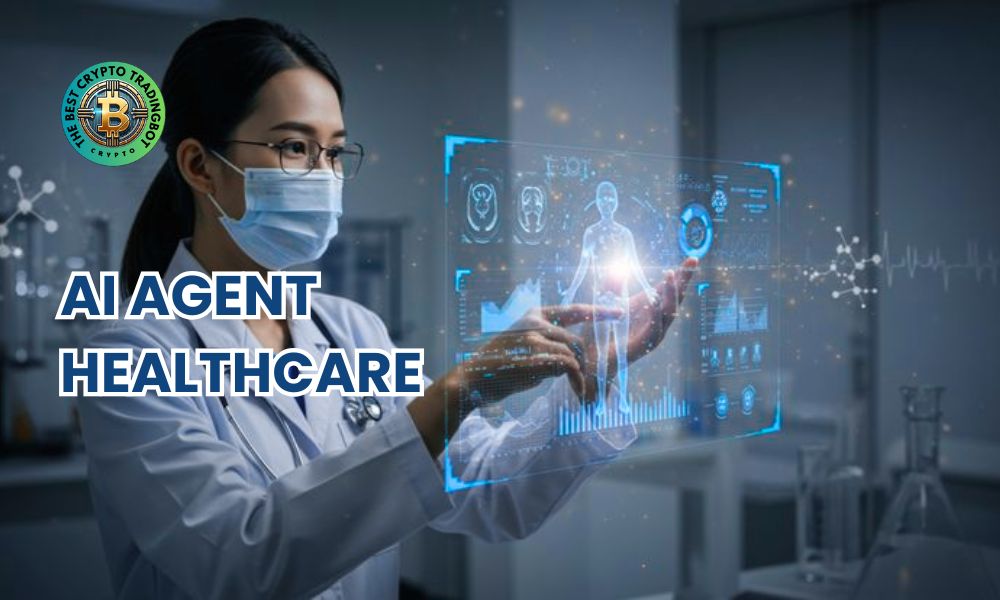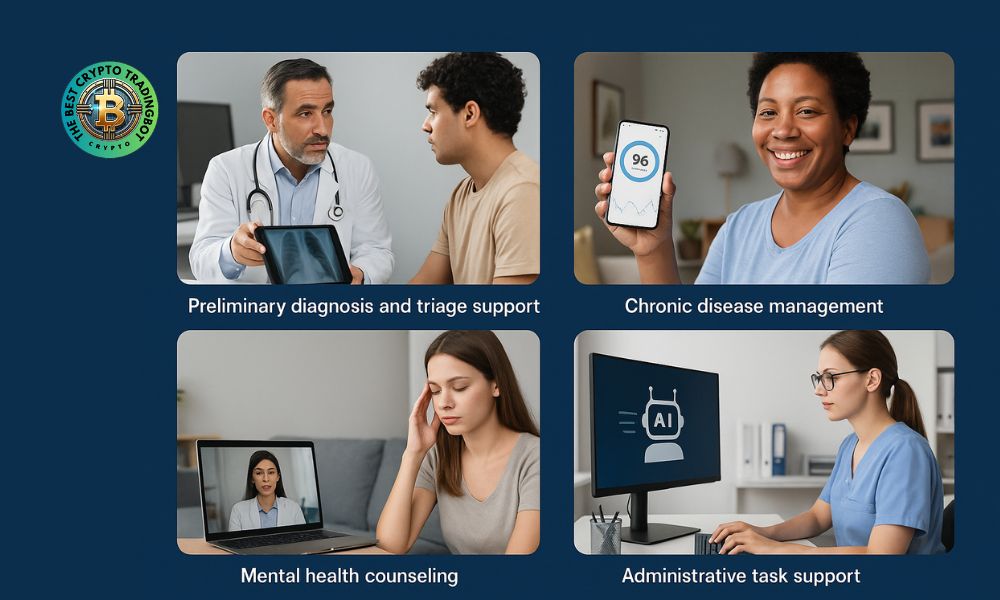AI agent healthcare is fundamentally reshaping the entire medical industry, introducing intelligent virtual assistants capable of interacting, performing preliminary diagnoses, and supporting personalized health management. This technology not only helps alleviate the burden on doctors and nurses but also ushers in an era of proactive, efficient, and more accessible healthcare for everyone.
Contents
What is AI agent healthcare and why is it important?
In the digital era, artificial intelligence (AI) is no longer a foreign concept. One of its most groundbreaking and profoundly impactful applications is in the health sector. Specifically, AI agent healthcare, or AI agents in health services, is emerging as a revolutionary tool, promising to change the way we approach and manage our own health.
Simply put, an AI agent healthcare is an intelligent computer program designed to perform tasks on behalf of humans within the healthcare ecosystem. It is not just a chatbot that answers questions based on a predefined script. Instead, it utilizes advanced technologies like natural language processing (NLP), machine learning, and big data analytics to understand, reason, interact, and even proactively make recommendations.
Its importance lies in its ability to address the biggest challenges of the modern medical industry: overcrowding, rising costs, and the increasing demand for personalized care. This is where AI agent healthcare truly shines, as it can operate 24/7, provide instant support, and process a vast amount of information that would be difficult for humans to handle.

Breakthrough applications of AI agent healthcare
This technology is being deployed across many facets of the medical field, bringing tangible benefits to both patients and healthcare professionals. The applications of AI agent healthcare are vast and transformative.
Preliminary diagnosis and triage support
This is one of the most common applications. A user can describe their symptoms to an AI agent via text or voice. Based on a massive medical database, the AI will analyze the information, ask relevant follow-up questions to clarify the situation, and offer preliminary diagnostic possibilities. More importantly, it can assess the severity and advise the user whether to rest at home, monitor further, or seek immediate medical attention. This helps to triage patients effectively, reduce unnecessary appointments, and prioritize urgent cases.
Chronic disease management
For patients with chronic conditions such as diabetes, hypertension, or heart disease, adherence to treatment and daily health monitoring is crucial.
An AI agent healthcare can act as a dedicated assistant by:
- Reminding them to take medication at the right time and in the correct dosage.
- Tracking vital signs (blood glucose, blood pressure) entered by the user or synced from smart wearable devices.
- Analyzing data trends and providing early warnings of any abnormalities.
- Offering advice on diet and exercise regimens tailored to their condition.
Mental health counseling
Mental health is an area of growing concern, yet many people still hesitate to seek help. AI agents provide a safe, private, and non-judgmental space for users to share their anxieties. While they cannot completely replace human therapists, these virtual assistants can offer techniques for coping with stress and anxiety, guide meditation practices, and track daily moods. They serve as an invaluable first line of support.
Administrative task support
Hospitals and clinics constantly handle a massive volume of administrative work. The implementation of AI agent healthcare can automate many processes, such as:
- Scheduling patient appointments.
- Answering frequently asked questions about services, costs, and operating hours.
- Sending appointment reminders.
- Assisting with the management and retrieval of electronic health records.
This frees up time for medical staff, allowing them to focus on their core mission: patient care.

Benefits and challenges of implementation
The development of AI agent healthcare brings countless benefits. Patients gain 24/7 access to medical services, receive personalized care, and become more proactive in managing their health. Doctors and nurses experience a reduced workload and have more data to make accurate decisions. The entire healthcare system becomes more efficient and cost-effective.
However, the adoption of this technology also comes with significant challenges. The security of sensitive health data is a top concern. The accuracy of the AI must be rigorously verified to avoid misdiagnoses that could have serious consequences. Furthermore, we must ensure the technology does not lose the “human touch” – the empathy and direct interaction that are an indispensable part of medicine. Developing clear legal regulations and ethical standards for AI agent healthcare is an urgent task.
AI agent healthcare is no longer a distant vision but is becoming a crucial part of the modern healthcare system. With its comprehensive support capabilities, this technology promises to enhance the quality of life for millions. To stay updated on the latest technology trends, be sure to follow The Best Crypto TradingBot.
